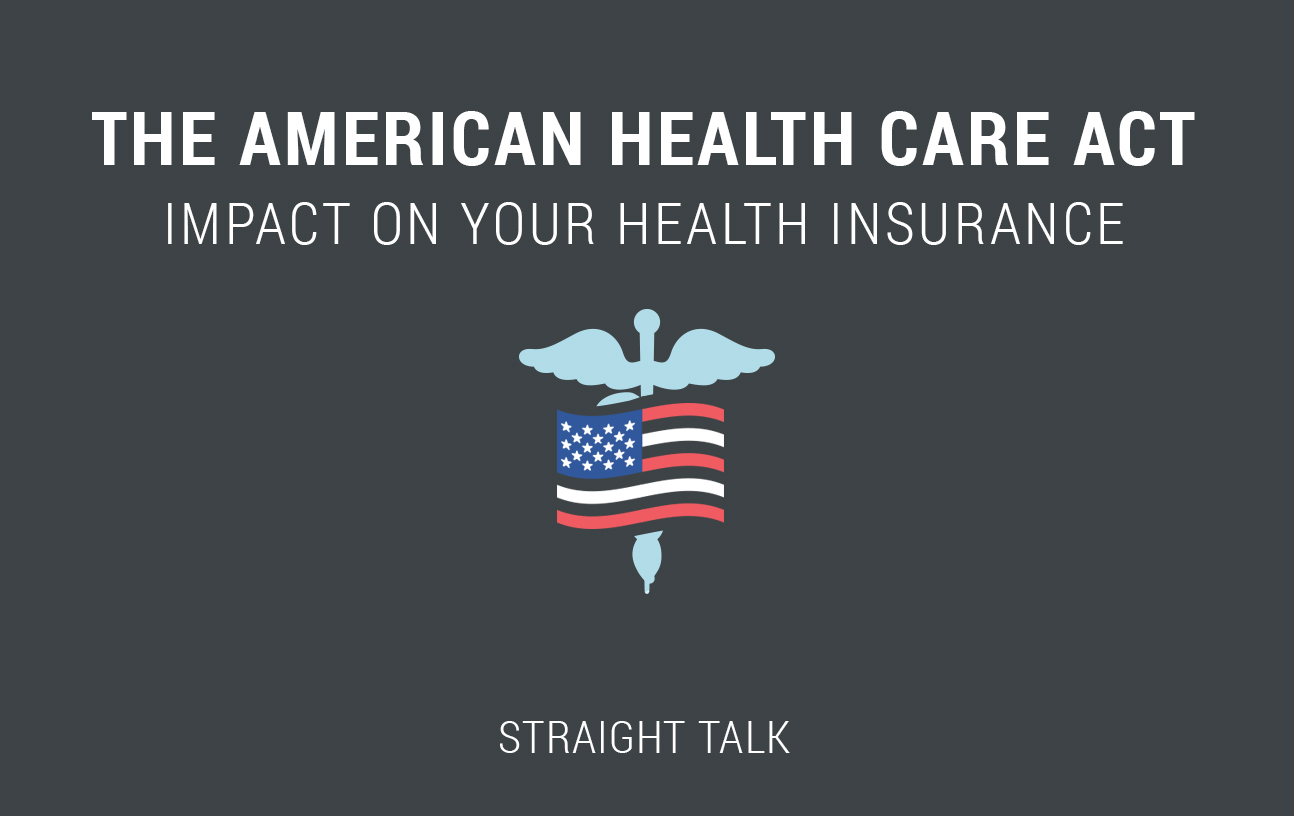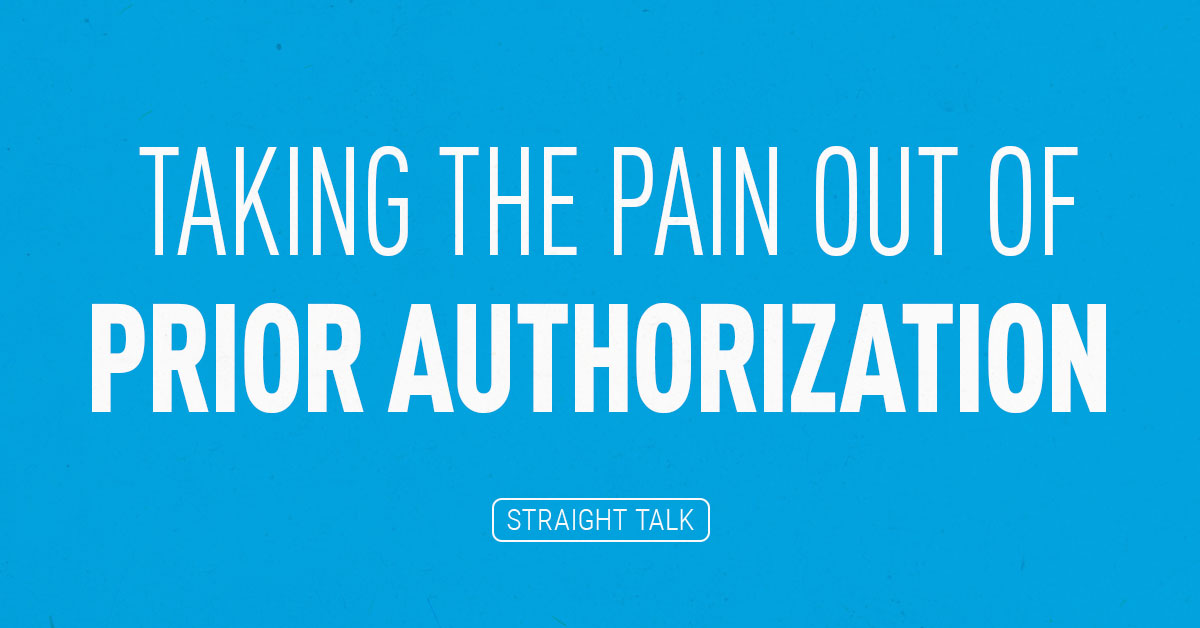In case you missed it, congressional Republicans are fast-tracking through normal procedures a couple of draft bills that could have huge impacts on the Affordable Care Act. Though not as ambitious as the original ACA, which was more than 2,800 pages long, the American Health Care Act (which the two draft bills together make up, btw) would change a lot in a relatively brief 122 pages.
Republican leadership say they want the act approved and to the Senate by April 1, 2017. That’s really fast in Washington, D.C., terms – lightning fast. In fact, as of this writing on Thursday, March 9, both the House Energy and Commerce Committee and the House Ways and Means Committee, which are the two committees that have the first pass at this legislation, have already passed the bills. The Congressional Budget Office isn’t done giving estimates on important things that are usually considered when passing laws, like how much this would cost and what the net effect on the insured population will be! My goodness, this is happening very quickly!
So Mike, nice setup. What’s in the Bills?
Glad you asked. There’s really too much for me to jam into one Straight Talk article, so I’m going to divvy this thing up into three parts over the next several weeks:
-
- The impact on the employer/group health insurance market
- The impact on the individual health insurance market
- The impact on Louisiana’s Medicaid expansion
“The ACA greatly changed the way employers can offer and pay for healthcare for their employees.”
I know it’s risky for me to commit to a three-parter while all of this is still being reviewed and could change, but I think we can make it work. I’ll adjust content as needed while we go forward, so if anything I write goes out of date, I’ll update you in the next post. That should keep you pretty current.
So, let’s get to the first topic:
The Impact on the Employer/Group Market
It’s important to remember that, most Louisianians with private insurance coverage – around 90% – get it through a job or an immediate family member’s job. At least half (sometimes lots more than that) of the premiums for employer/group insurance are paid by the employers, and that the employees covered in these group plans get very important tax benefits.
The ACA greatly changed the way employers can offer and pay for healthcare for their employees. It even changed the taxes and set rules about to whom employers had to offer coverage. It put the employers in a much smaller box, in general, when they sought to offer insurance as a job benefit.
The newly proposed act could potentially rip the lid off of that ACA box for employers.
“First, the act would eliminate the fines on the employer mandate. So whether or not employers follow all the new rules, they would never get fined.”
The ACA fines employers that have more than 50 full timers (in general) if they don’t offer bona fide health insurance to at least 95% of those full-time employees. Then, follow-up regulations changed the definition of full-time to 30 hours per week, on average, not 35 or 40, which had been considered standard before.
These changes led to millions of people gaining health insurance through their jobs, but also led to more expenses for the companies and a backfiring side effect of incenting employers to keep part-time people under 30 hours per week. The ACA really shifted the landscape for employers in that 40-200 employee size range (which is typical size for many companies that offer coverage to their employees).
It also added new reporting requirements (1095s A through C) that drove up employer costs and caused lots of angst. These ACA changes were all designed to support the employer mandate, which was enforced by fining businesses that didn’t follow the rules.
If Passed, What Does the New Act Change?
First, the act would eliminate the fines on the employer mandate. So whether or not employers follow all the new rules, they would never get fined.
If the act passes with this section intact, I think it’s really likely we could see regulatory action from federal agencies right afterward to change some of the ACA’s other requirements (like the 30 hours = full-time thing).
“The act would allow you to put twice as much money into savings pre-tax for your healthcare needs, and would also let people with H.S.A.s use the money for all medical expenses, even over-the-counter drugs.”
Does this change give employers more control over their expenses? You bet.
Does it let employers offer benefits to fewer people? Yes, again. Here’s where it gets interesting:
Since 2014, Blue Cross has tracked claims of people employers added under the new requirements. Lots of workers who weren’t offered health insurance prior to 2014 are now offered coverage, and many of them have taken it. And, our research shows that, in general, the new population of covered workers is healthier than the original (pre-2014) population of covered workers!
This means employer rates have been rising at a slower pace than they would have if those employers had never been subject to the ACA’s rules. Of course, they are paying premiums for more workers, but the implication is that if they dropped the newly covered folks, the premium rates they pay on the remainder of their workforce will go up faster than they are going up now. A real catch-22!
Second, the act would do away with a tax that threatened the tax deductibility of employer plans and added a surcharge as health insurance got more expensive. That tax, put into law under the ACA, was inappropriately called the “Cadillac Tax” because it was originally designed to tax very fancy health insurance plans like an executive might get. After the ACA passed, lawmakers realize the tax would penalize one-third of all Americans by 2020, so this tax has been on life support for years. The mandate to pay it has kept being delayed. The proposed act would delay it until 2025, which would effectively kill it.
“We fully expect federal agencies to issue tons of new regulations amending and eliminating a lot of the old regulations.”
Finally, the act makes major changes to Health Savings Accounts. If you aren’t using a High Deductible Health Plan/Health Savings Account combination right now, you’re probably leaving some tax dollars on the table (I’m in my 10th year of using this combination). Around 20 million people are already covered by H.S.A.s, and that number has doubled in the past six years.
The act would allow you to put twice as much money into savings pre-tax for your healthcare needs, and would also let people with H.S.A.s use the money for all medical expenses, even over-the-counter drugs. The act also lowers the tax penalty if you are forced to use your H.S.A. money for a non-medical emergency.
Affecting both group and individual insurance customers are a raft of taxes the original ACA imposed on us, which would be terminated immediately if the act passes in its present form. Tax increases on tanning services, health insurance policies, dividend income, Medicare contributions and medical devices you might need (like a pacemaker or artificial hip) will all be rolled back or eliminated.
These taxes were imposed originally to help pay for the Medicaid expansion and the Advanced Premium Tax Credits (subsidies) and Cost Sharing Reductions people get when they purchase on www.healthcare.gov. We’ll cover this in more detail in the next Straight Talk, which will address the changes to the individual marketplace.
So for employer plans, the tripwire will be the elimination of the fines associated with the employer mandate. Once those go away, employers will be able to make many changes to their benefit offerings painlessly. We fully expect federal agencies to issue tons of new regulations amending and eliminating a lot of the old regulations. And we will be tracking those changes every single day, right here at Blue Cross, so we can keep you informed.
My speaking calendar is filling up VERY quickly, which is a sure sign that we are living in…“Interesting Times.” Straight Talk will keep you up to date.





Need information on filing a claim need questions can y’all help